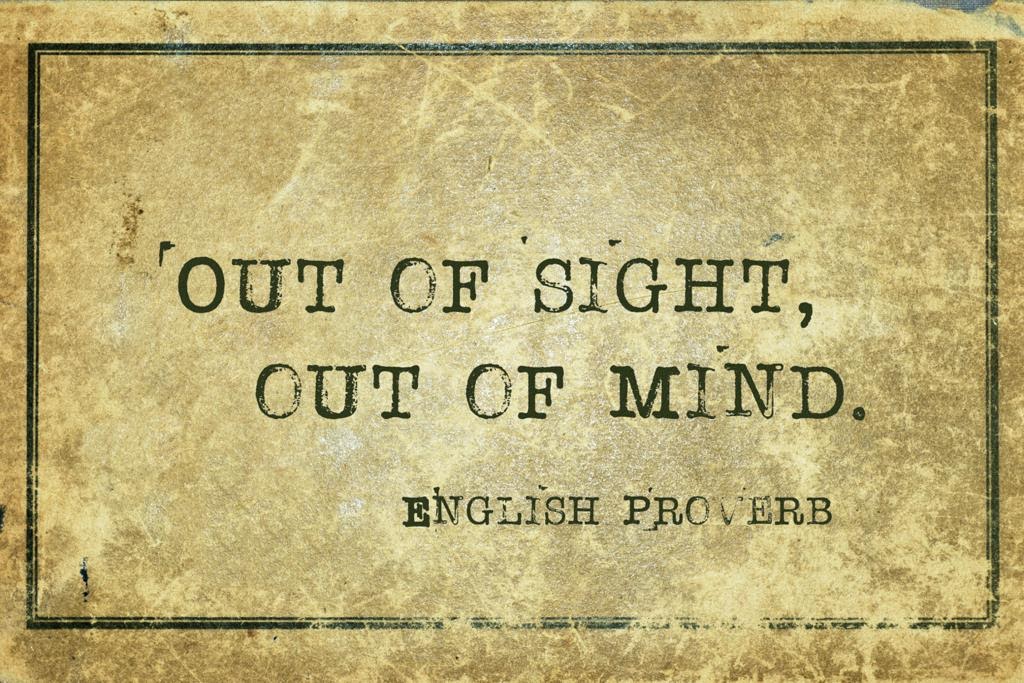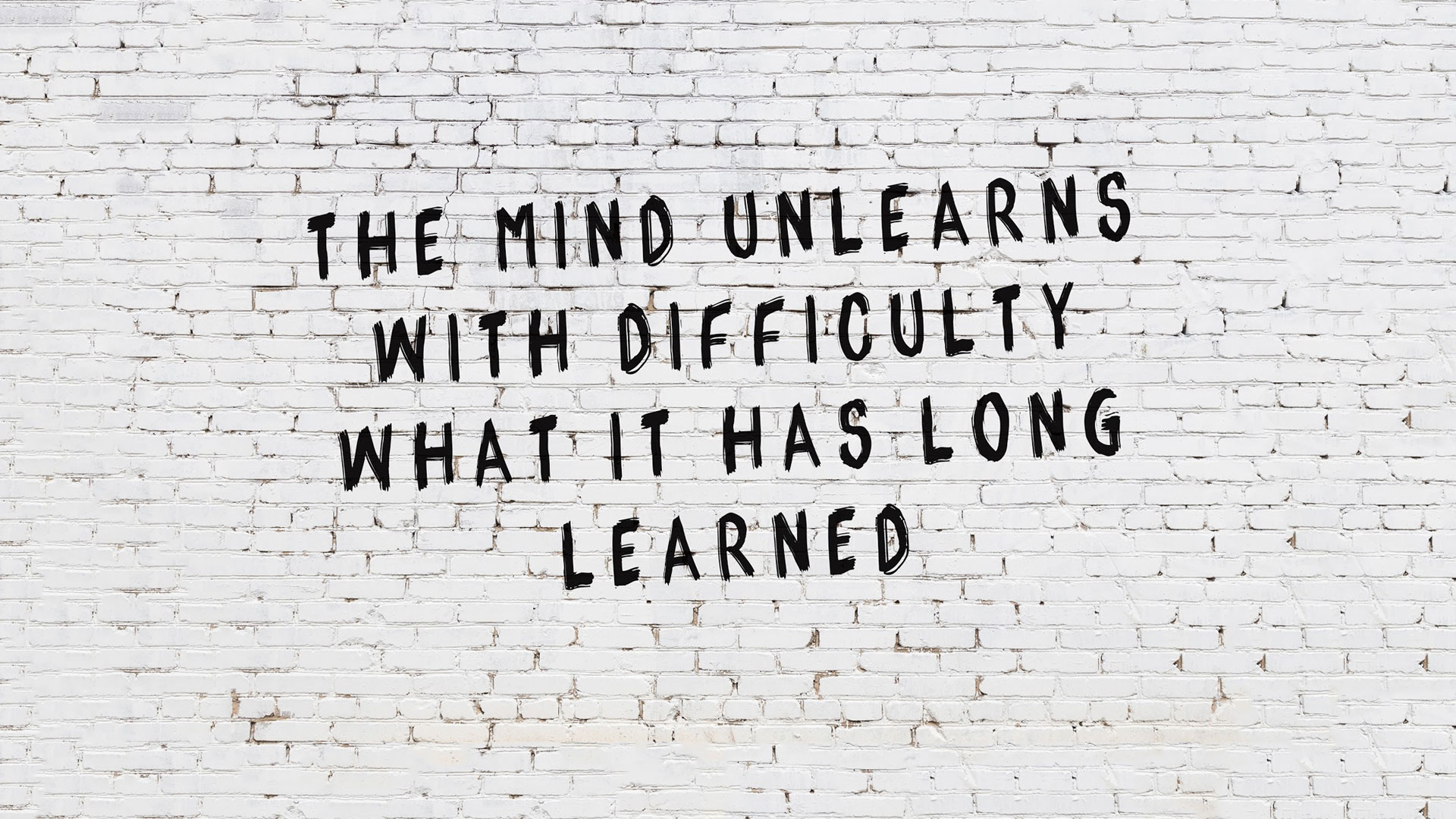Have you struggled with implementing the right habits for success in your fat loss and fitness journey?
The roadblocks are many: binge eating; alcohol; stop and start exercise; jumping from one dietary camp to another. You then pronounce your resolution to change these bad habits (often on 1st January), but year on year the same story unfolds…
As much as learning new habits is potent, unlearning the bad ones creates the space for true change. Allow me to explain…
Unlearning Habits And Creating Space
I discussed neuroplasticity here. Scientists have shown that the brain changes its very structure with each different activity it performs, perfecting its circuits over time and with practice, to be better suited to the task at hand (1).
The thing is, this brain plasticity, the ability to re-wire patterns of behaviour, is competitive in nature. There is an endless war of nerves going on inside your brain. If you stop exercising certain skills, you do not just forget them: the brain map space for those skills is occupied by the skills you practice more of instead.
Competitive plasticity explains why our bad habits are so difficult to break or “unlearn.” There is a competition for the real estate in your brain, and resources are allocated according to the principle of use it or lose it.
When we learn a “bad” habit, it takes over a brain map (i.e. it develops a neural network). Each time we repeat it, it claims more control of that map, making the habit self-sustaining. This prevents the use of that space for “good” habits and is why “unlearning” is often a lot harder than learning.
Unlearning is essential when we are evolving from one developmental stage to the next. When children fly the nest their parents undergo grief and massive plastic change, as they alter old emotional habits, routines, and self-images. This is not too dissimilar to what is felt when attempting to change dietary habits.
Think of the difficulty most adults have making a dietary shift. As you age, the more habitual your consumption of certain foods, the more those habits come to dominate your brain map space. Neurons (brain cells) fire together and wire together, and it’s quite likely that your eating patterns have been wiring together for many many years. Thus because your brain is plastic – and because plasticity is competitive – it is really hard to implement the “healthy change” and end the tyranny of the average western diet.
The key is not so much to “break” bad habits as replace the bad with better ones, leading to a gradual “unlearning” of less conducive behaviours.
The Key Components To Successfully Unlearning
1) Attention
Paying close attention is essential for lasting change to occur, promoting long-term plastic change (2). Performing tasks automatically without paying attention will lead to brain map change, but those changes won’t last. “The ability to multitask” in this sense is overrated. While you can learn when you divide your attention, divided attention doesn’t lead to lasting change in your brain maps.
2) Reward
The “reward” is a crucial factor. Rewards cause the release of neurotransmitters such as dopamine, which help consolidate the map changes made in the brain. Dopamine is a pleasure-giving neurotransmitter, triggered by the brain when you accomplish something. Addictive behaviours give you pleasure without having to work for it, essentially hijacking the dopamine system.
3) Repetition
What rewires brains and habits is not necessarily unwarranted and radical restriction. By practising a new behaviour or skill, the essence of change is incremental training, or purposefully increasing difficulty over time.
The Top 4 Tips For Unlearning For Fat Loss Success
1) Decide whether you are in or out
Be prepared to let go of behaviours that are not serving you, to be able to focus on the ones that do with a higher degree of focus.
Is your golf game an array of slicing and mis-hit bunker shots?? Until you’re ready to commit to taking the steps to make real progress, it’s okay to let it go. Instead create the brain space for those gym sessions to allow you to build that lean and healthy physique you’ve always yearned for.
2) Rig the system in your favour
It’s okay to start small. Committing to 30 mins of exercise three times a week is a monumental improvement if you are currently doing nothing. Regressing to an easier version of an exercise you are struggling with carries no shame.
There’s a reason for the term “food porn”. Highly palatable foods hyperactivate the appetitive system of the brain. This develops new maps in your brain, based around the foods you habitually consume. Because it is a use-it-or-lose-it brain, when we develop a map area, we long to keep it activated. With practice and attention, you can make it such that your muscles become impatient for exercise if you’ve been sitting all day. You are creating space for your appetite system to be stimulated by exercise instead.
Create a food environment that is conducive to your success. Keep loaves of bread and savoury treats locked away, out of sight. Commit to having a fruit bowl as the only visible food item on your kitchen counter. You are allowing your attention to shift toward alternatives that will contribute to your success, with the rewiring of neuronal networks in the brain.

Hire a coach to give you the guidance, education and accountability that will drastically stack the cards in your favour.
3) Do the opposite
If you’re used to spending your gym sessions on cardio machines and are not seeing results, try something completely different, to which you have no previous associations with. Give weight training a go and lift some heavy things for a change. This will give you a clean break from the negative associations you have with being unsuccessful with cardio. Create new associations.
4) Reward yourself
No, I don’t mean have a pizza after going to the gym. There are smarter ways to do this.
Calorie cycling is a formidable tool that gives you both a physiological benefit and a reward. Let’s face it, carbohydrates are tasty. You can set up your nutrition such that your carbohydrate allowance is allocated to before and after your training session. Not only will this assist your performance and recovery, but you are now able to enjoy the good stuff as a function of having performed some work. Keep calories lower on non-training days (3).
Then there is the inherent reward implicit in a well-designed training program that implements progressive overload. No matter what your starting point is, you aim for a marginal improvement in each training session, whether it is in repetitions performed or load increased. This triggers the dopamine reward system, and although you may not feel like it during the session, the sensation of accomplishment is a potent motivator.
Strategic use of caffeine can be another rewarding system. Drink decaf throughout the day, and save your shot of real coffee for pre-workout. Caffeine can increase training performance (4). Create an association between your training session and that glorious (skimmed) latte.
Remember, paying close attention, building reward systems, and incremental improvement are the keys to unlearning “bad habits” and creating brain space for the “good” ones. Use these tips to go forth and progress, evolve, and transform.
About the author
Cymron Bancil
After years juggling a senior banking career with my passion for fitness, I left finance to help busy professionals transform their bodies inside and out. As an online coach, I use a science-based approach to get you the lean, healthy physique you deserve.
Get my top research-led and results proven tips delivered right to your inbox via my free newsletter HERE.
References
- Doidge, Norman. The Brain That Changes Itself: Stories of Personal Triumph from the Frontiers of Brain Science
- Merzenich, M. M., Vleet, T. M. Van, & Nahum, M. (2014). Brain plasticity-based therapeutics. Frontiers in Human Neuroscience
- Harvie, M. N., Pegington, M., Mattson, M. P., Frystyk, J., Dillon, B., Evans, G., … Howell, A. (2011). The effects of intermittent or continuous energy restriction on weight loss and metabolic disease risk markers: A randomized trial in young overweight women. International Journal of Obesity, 35(5), 714–727
- Cook, C., Beaven, C. M., Kilduff, L. P., & Drawer, S. (2012). Acute caffeine ingestion’s increase of voluntarily chosen resistance-training load after limited sleep. International Journal of Sport Nutrition and Exercise Metabolism, 22(3), 157–164


